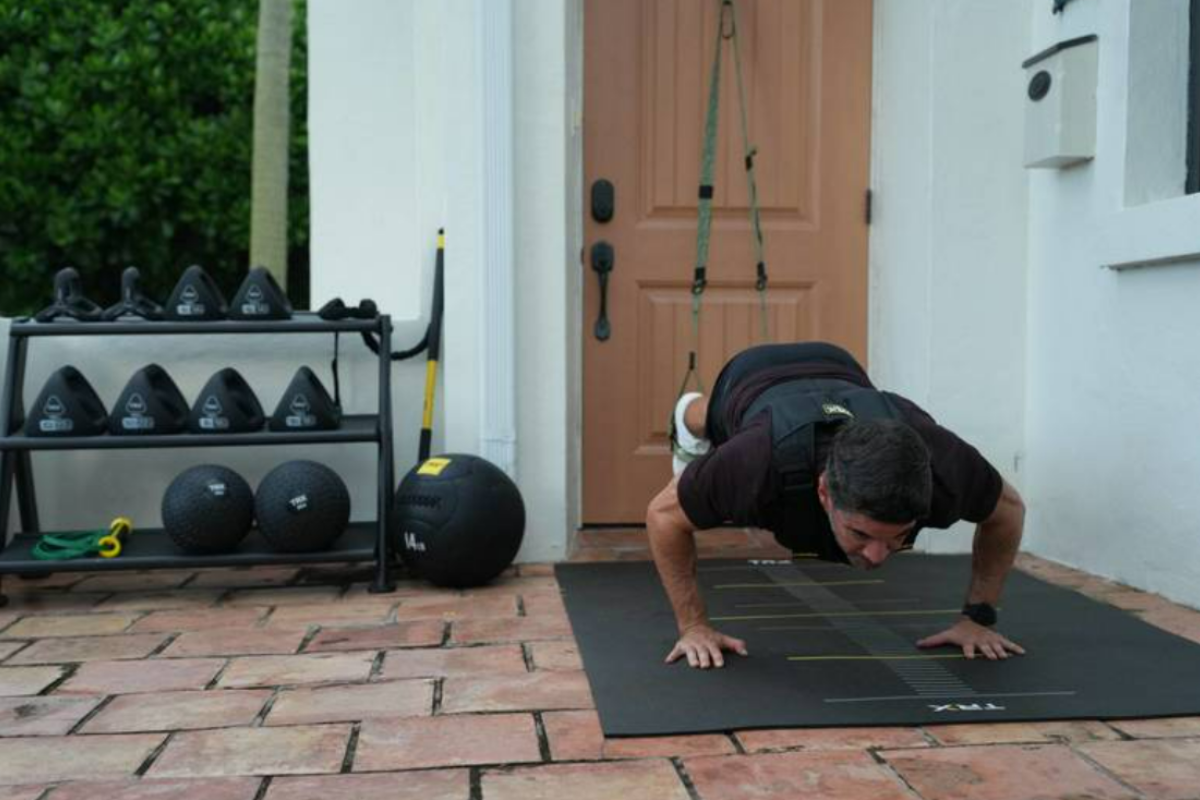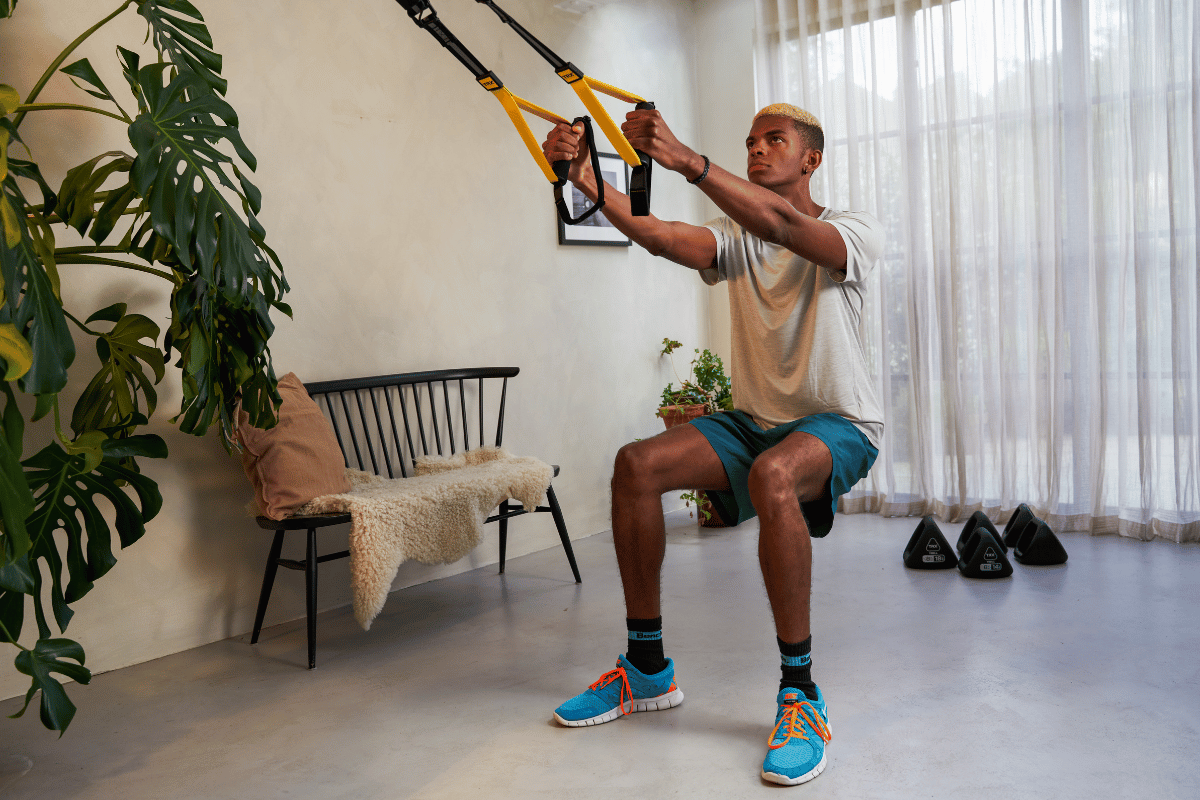The same old gym routine gets stale, and even the sound of plates hitting the floor may not get your blood pumping like it used to.
But there's a fix for that workout boredom. Fitness competitions are popping up everywhere, giving regular gym-goers a chance to test their strength against others.
Competitions are a fun way to switch things up for everyone from first-timers to gym rats who've been at it for years. Want to see what kind of competition might light your fire? Keep reading.
Functional Fitness Competitions
The fitness world is changing fast, and regular workouts don't always cut it anymore. More people want a goal that pushes them past their comfort zone.
That's where fitness competitions come in. They're not just for the elite athletes anymore, and the variety might surprise you.
1. TRX Ignite Games
The Ignite Games aren’t about showboating. They’re about grit, control, and seeing how far you can push yourself in a short window of time.
Picture this: 500 square feet, ten stations, and just 35–45 minutes on the clock. It’s compact, intense, and designed to fit inside almost any gym or training center.
The beauty of Ignite Games is that it strips things down to the basics, but nothing is watered down. You’ll pull, push, stabilize, and grind your way through movements that challenge strength and endurance at the same time.
Beginners can step in and learn fast, and veterans will quickly realize there’s no coasting here.
Here’s the big picture:
-
Seven strength stations built around suspension training [1]
-
1 km total run, split into manageable bursts
-
1 km row to keep your engine honest
-
Ten stations total that cycle you between resistance, stability, and cardio
-
Choose your lane: compete solo or team up with a partner
-
Divisions for everyone: men’s, women’s, and mixed
What makes this competition different is the way suspension training gets woven into the flow. They aren’t just accessory moves, they’re foundational. The straps force you to stay sharp when your core is screaming and your balance is fading. [2]
That’s how Ignite separates casual workouts from true competition.
And if you like measuring your progress, global leaderboard lets you see exactly where you land, whether you’re chasing bragging rights or just beating your own last time.
Short. Gritty. Doable. That’s the point. You don’t need a massive arena or hours to prove what you’re made of. Just show up, clip in, and go.
2. HYROX
HYROX took Europe by storm before making its way across the pond, and now it's everywhere. It's like a race met a gym workout and had a baby.
The format sticks to the same pattern every time, which means you can train for it without wondering what crazy surprise they'll throw at you next.
What you're in for:
-
Eight 1km runs
-
Eight workout stations between runs
-
Exercises like sled pushes, rowing, and wall balls
-
Options for singles, doubles, or relay teams
3. CrossFit Open & Games
CrossFit's been around long enough that most people know what it's about, even if they've never stepped foot in a box. The Open is their big yearly event where anyone can try to hang with the best in the world, right from their local gym.
The basics:
-
Three weeks of online competition
-
New workouts announced weekly
-
Scaled options for beginners
-
Top athletes advance to quarterfinals
4. Festivus Games
If you've ever watched serious fitness competitions and thought "I wish there was a beginner version," well, there is. Festivus Games fills that gap between regular gym workouts and hardcore competitions. They keep the movements simple, but it’s challenging enough that you’ll really feel accomplished when you finish.
What makes it work:
-
Single-day event
-
Basic movements only
-
Standardized workouts across all locations
-
Strong focus on community support
-
Perfect intro to competitive fitness
Obstacle Course Races (OCR)
You run. Then you hit a wall, a rope, or a pit of mud. That’s OCR. It’s messy, it’s tiring, and that’s the point. You deal with whatever shows up while your lungs are burning. Sometimes you push alone. Sometimes you need a hand.
Short races? Good entry point. Long ones? They break people down until it’s just stubbornness keeping them moving.
5. Spartan Race
Spartan keeps it raw. The obstacles aren’t fancy, but they punish you. Miss a spear throw? Drop for burpees. Rope climb? Slip once and your arms are toast. Sandbags and buckets don’t get lighter, only heavier the longer you carry.
Train smart. Run for your engine. Build grip for the ropes. Get used to hauling awkward weight. Show up soft and you’ll get chewed up.
What you’ll face:
-
Spear Throw – Miss it, you pay in burpees.
-
Rope Climb – Grip and legs or nothing.
-
Heavy Carries – Buckets and bags that grind you down.
6. Tough Mudder
Tough Mudder is about the crew. Alone, you stall. With help, you get through. Walls, trenches, and mud are built to force teamwork.
It also messes with your head. Ice water steals your breath. Wires snap at random. Mud sucks the speed out of you. Courses range from short jogs to all-day slogs.
Things to expect:
-
Arctic Enema – Freezing dunk that stuns you.
-
Electroshock Therapy – Random zaps, no warning.
-
Mud Mile – Trenches where teamwork is the only way forward.
Endurance Challenges
Endurance events are where grit gets real. Six hours in, everyone looks the same: shuffling feet, hollow eyes, questioning all their life choices. And that’s before the blisters kick in.
Want to survive? Don’t wing it:
-
Fuel up every 45 minutes. Skip it and you’ll bonk so hard you’ll be walking backwards.
-
Salt tabs keep the cramps away. Your quads will thank you.
-
Game plan for when situations go sideways (because they will).
-
Crew up with friends who won’t ditch you when training eats your weekends.
These races aren’t about being the fastest; they’re about being the last one standing. Train the engine, train the head, and remember: stubborn beats speedy when the miles get ugly.
7. Ironman Triathlon
Look, the Ironman's gonna hurt. There's no way around swimming, biking, and running until the sun goes down. Most folks take a year to train, and even then, half of them can’t handle it.
Your options:
-
Sprint: Beginner-friendly, done in 2-3 hours
-
Olympic: Your whole Sunday, better pack lunch
-
Half Iron: Kiss your weekend goodbye
-
Full Iron: Better have an understanding family
8. 24-Hour Challenges
You haven't lived until you've watched the sun rise twice during one event. These races are weird: sometimes you're running, sometimes you're carrying logs, sometimes you're wondering why you paid money for this.
What gets you through:
-
Real food (PB&J beats fancy gels)
-
Dry socks (your feet will thank you)
-
Caffeine (but not too much)
-
A goal to focus on (to help you ignore the pain)
-
A sense of humor (you'll need it at 3 AM)
Unique & Alternative Competitions
Some folks can't stand the monotony of regular sports, and who can blame them? Somewhere between the endless laps and cookie-cutter workouts, there's a whole underground world of competitions that'll make your typical marathon look pretty tame.
These aren't your garden-variety fitness challenges. They make people ask "why would anyone do that?" (usually while signing up themselves).
9. Adventure Racing
Spending a weekend slogging through mud with a compass and three other sleep-deprived teammates doesn’t sound exactly like fun, but that's exactly what adventure racing delivers.
These events stretch anywhere from 6 hours to 5 days, depending on how much you hate comfortable beds.
Teams navigate through wilderness while:
-
Paddling whatever floats (kayaks, canoes, rubber ducks)
-
Mountain biking on what barely passes as a trail
-
Rappelling down cliff faces that looked way smaller on the map
-
Trekking through terrain that'd make a goat nervous
10. Strongman Competitions
These events aren't just about lifting heavy stuff, they're about lifting weird heavy stuff. Modern strongman has evolved past the circus-style shows of the past, though there's still plenty of spectacle.
Most competitions include:
-
Atlas stones (basically concrete spheres that weigh as much as a small car)
-
Farmer's walks with implements that tear up your hands
-
Vehicle pulls (yes, actual trucks)
-
Log presses that look nothing like your gym's shoulder press
11. Combat Sports (Amateur Boxing/MMA)
Getting punched in the face isn't everyone's idea of a good time, but amateur combat sports keep growing, so it’s definitely someone’s.
These competitions draw everyone from college athletes to accountants who've watched too many Rocky movies. Before stepping into the ring, fighters spend months drilling techniques and convincing their families they haven't lost their minds.
Team-Based Competitions
Sometimes having a few friends suffering alongside you makes competition better. Plus, it's harder to quit when other people are counting on you.
12. Turf Games
Think of it as recess for grown-ups who lift weights. These events pack hundreds of athletes into warehouses or outdoor spaces, mixing CrossFit-style workouts with challenges that seem made up on the spot.
The atmosphere's electric, with music blasting and chalk clouds floating through the air like some kind of fitness fog machine.
13. Tribal Clash
The beach becomes a battleground in this team competition that feels like Survivor meets the CrossFit Games.
Teams tackle brutal workouts while dealing with:
-
Sand (it gets everywhere, seriously)
-
Ocean swims in questionably cold water
-
Heavy implements that were clearly designed by sadists
-
Weather that never cooperates
-
Camping conditions that make everyone appreciate their bed at home
It’s equal parts miserable and magical, which is probably why people keep coming back for more.
Why Should You Enter a Fitness Competition?
Walk into any gym in January, and you'll see crowds of people working out, but most of them aren’t focused on a specific goal beyond “getting fit” or “losing weight.”
But step into that same space during competition prep season, and you’ll feel a whole new energy. These are athletes training with purpose, pushing toward something bigger than just another set of bicep curls.
Signing up for a fitness competition puts a date on the calendar that won't move. That deadline means every rep counts toward specific goals. Preparing for the best fitness competition gives your training structure, purpose, and the motivation to stay consistent even on tough days.
It doesn’t matter whether it's a powerlifting meet where you'll need to hit those squat numbers, or a CrossFit throwdown where your endurance must peak at exactly the right time. That pressure gets you going like never before.
It strengthens your mental game, too. Competition prep builds the kind of strength that keeps you going when your alarm rings at 5 AM for cardio, or when you're tempted to skip that last set.
These habits stick around long after the medals are handed out. That energy will show up for you in work presentations and during tough life choices.
Beyond the obvious physical and mental benefits, competitions offer:
-
A built-in community of training partners who understand your journey
-
Clear, measurable goals (like adding 15 pounds to your deadlift in 12 weeks)
-
Expert coaching and feedback you won't get from regular gym sessions
-
The chance to test your limits in a controlled environment
-
New techniques and training methods you might not try on your own
-
Lasting friendships forged through shared challenges and victories
Maybe the best part? You'll find yourself surrounded by people who don't roll their eyes when you talk about macros or PR attempts. Training partners spot more than just your bench press: they spot the moments when you might give up, and they’ll get you back in the game.
How to Prepare for Your First Fitness Competition
Getting ready for a competition is kind of like learning to drive: you can't just jump in and hit the highway.
Most people who've done this before say you'll want 8 to 12 weeks to get your body used to what's coming. It can also help to start with a local competition that’s not too crazy.
Building a Strong Foundation
The boring part is probably the most important: you've got to get strong enough to handle what's ahead. Push-ups, squats, and other basics are critical. TRX suspension straps will help you work on balance along with strength.
Competition-Specific Training Tips
Each sport has its own tricks, so do a little research to find out how the seasoned competitors are training. Look for gear that will help you train in ways that match the movements you’ll be doing on the big day.
That weighted stick with the band (Rip Trainer) helps you twist without messing up your back. And those funky four-handled weights are better than regular dumbbells for moving around.
Essential Gear and Equipment
Gear won’t win the race for you, but the wrong gear will absolutely wreck your day. Here’s what matters:
-
Sprints – Spikes with 4–6mm pins. Just enough bite to grip, not enough to slice your shins. Compression shorts so nothing’s flapping mid-run. And break in those shoes, because race day is no time for blisters.
-
Throws & Jumps – Event shoes. Real ones, not your old sneakers. Implements that match your weight class. Pads that don’t fold like pancakes.
-
Travel Kit – Resistance bands, a jump rope, and a foam roller that won’t crumble under pressure. Toss in a massage ball and yoga mat so your body doesn’t hate you later.
Most importantly, practice with the gear you’ll compete in, twice a week at minimum. Keep backups in your bag. And never, ever, trust brand-new shoes on race day. That’s not grit, that’s rookie pain.
Taking the Leap
Choosing your first fitness competition can feel daunting. But remember, every pro started as a beginner who said yes. Start small and pick the best fitness competition that fits your current skill level, then build from there as your confidence and performance grow.
The TRX Ignite Games are the perfect entry point: a challenge that pushes you but still keeps things accessible. Backed by proven TRX research, you’ll gain more than just strength, you’ll unlock confidence and resilience.
So lace up, grab your TRX best-sellers, and step into your next fitness challenge ready to ignite your potential. Prepare well, train smart, and embrace the community.



